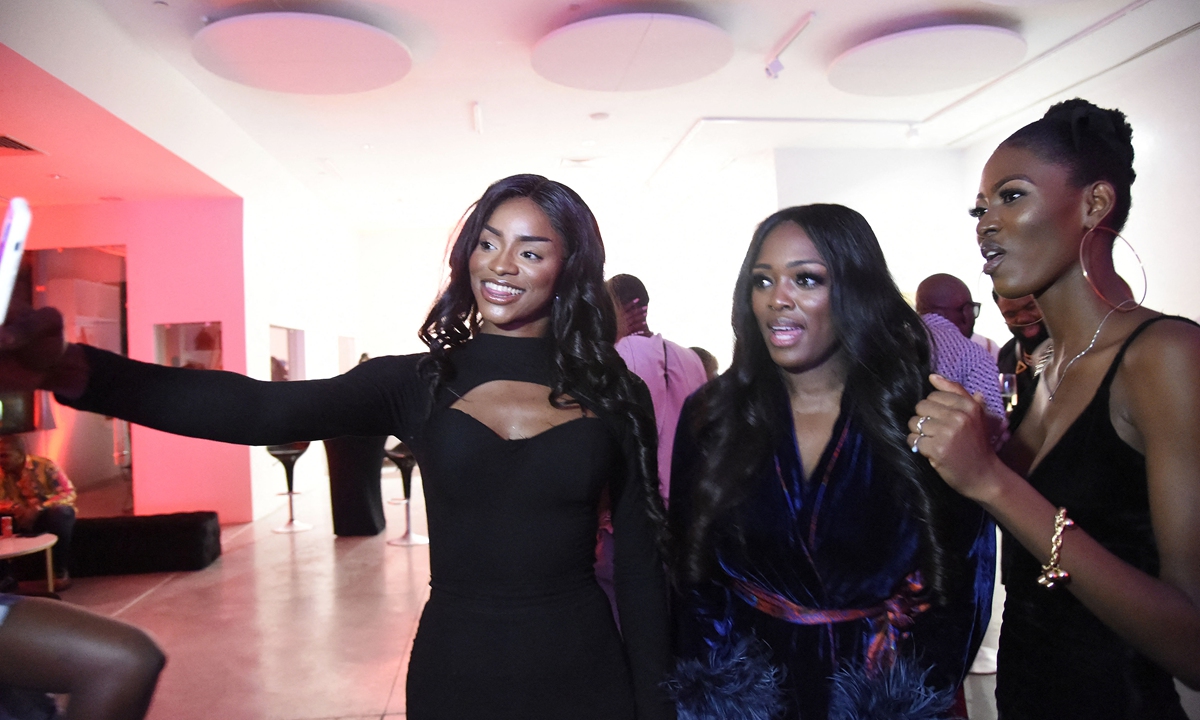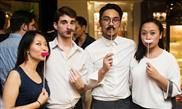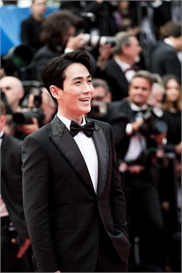
Elizabeth Elohor (center) attends the screening of the Lars von Trier's film Dancer in the Dark on Friday in Boulogne-Billancourt, France. Photo: AFP
Champagne corks popped and sequins sparkled like a thousand tiny stars in Nigeria's economic capital Lagos, where an international model casting was on the hunt for the face of the future.
Elizabeth Elohor is sure that it will be an African one.
The former top model created the first modeling agency in Nigeria back in 2004, when there was no Fashion Week on the continent, very few local designers and little high-end fashion.
Now with her Future Face Africa casting, Elohor hopes to expand the search for future talent from Nigeria to the rest of the continent.
Before the 2000s, there were few black faces gracing women's cover of magazines with the exception of iconic figures like Naomi Campbell, Donyale Luna and Beverly Johnson.
In Nigeria, Africa's most populous country with more than 200 million people, the few who at the time dared to venture into modeling were independent, vulnerable, and had to distribute their own portfolios to companies specializing in events and advertising.
When Elohor returned from London in 2004 to start Beth Model Agency, she was breaking new ground, said Marius Isikalu, a former top model at barely 30, who now works alongside her.
"Elizabeth was a pioneer. She signed all the known models back then and she said 'If you want to use them, this is how much you're going to pay, and those are the conditions,'" Isikalu said standing on the event's red carpet.
"She set the rules, the rates, she set the pace."
The turning point for Africa's modeling world came in 2010 when South Africa and Nigeria organized fashion weeks that were recognized on the international scene as "select" in fashion world.
The recent Black Lives Matter movement and high-profile advocates for the beauty of black women are also helping to change trends.
But the reasons are also economic.
"International designers like Louis Vuitton, Dolce & Gabbana, Balmain... have started realizing that a lot of their clients are actually from Africa," Elohor said, seated in a mustard yellow armchair by a Nigerian designer.
"Back in the days, out of 50 agencies, you would probably have like five models and now, one agency can have up to 10, 15 African models."
Tobi Momoh is one of the new generation of models.
Smiling and full of life, the 19-year-old goes from table to table in her fitted black dress, greeting stars from Nigeria's Nollywood film scene, Afropop music royalty or reality TV stars.
Tobi was just 15 when she won the Elite Model Look Africa competition, which propelled her onto the catwalks in Milan, Paris and in several international agencies.
"We have the beauties to rock the runways," she said.
Elizabeth knows that, too.
And even if she no longer has time to walk the streets of Lagos, her passion for finding the rare pearls of African beauty remains with her.
Through Future Face Africa, a huge casting first via social networks and then in face-to-face castings, she wants to broaden her search to the whole continent and make fashion shake in Africa.
The growing sector has allowed the emergence of many actors, designers and also photographers.
Kola Oshalusi, a famous Nigerian fashion photographer, has also witnessed the explosion in demand and the professionalization of modeling in Africa over the past decade. Even Nigeria's growing security troubles, high inflation and economic woes can't take away the sense of hope.
"Nigeria is Africa. The models are confident, they are bringing so much energy on the runways, they know what they want, and it's helped to build an incredible reputation on the international scene," Oshalusi said.
AFP


